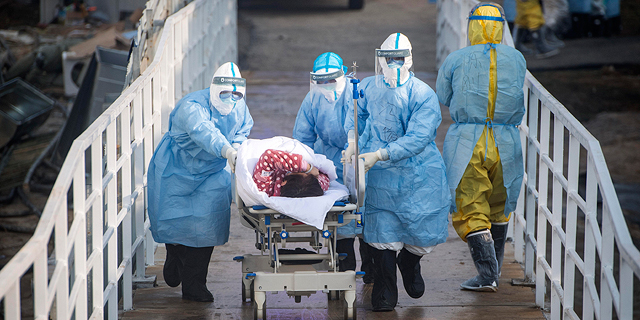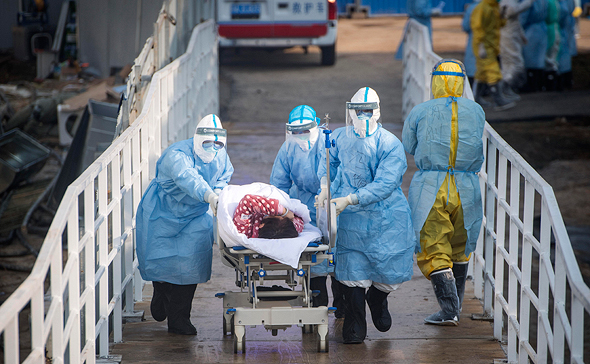
Exclusive
Spy Agency’s Phone Surveillance Detected a Third of Israel's Covid-19 Cases
According to a Ministry of Health report submitted to the Parliament's Subcommittee of Secret Services, Israel’s Security Agency identified 4,089 cases as of May 10
Spying by Israel's Security Agency, better known as the Shin Bet, was responsible for the early discovery of around a third of all the verified coronavirus (Covid-19) cases in the country, according to a report by the Ministry of Health submitted to the Parliament’s Subcommittee of Secret Services seen exclusively by Calcalist.
As of May 10, some 4,089 cases were identified with the help of the Shin Bet. The subcommittee convened on Tuesday and voted in favor of a three-week extension of the emergency regulations under which the ISA’s technological surveillance program was originally activated. The emergency regulations were originally authorized in a rush by the government while bypassing the authority of the Knesset, the Israeli parliament.
Last week, the Prime Minister’s Office, which oversees the ISA, issued a draft bill that permits the ISA to make use of its technological capabilities to combat the spread of Covid-19. “In light of the ongoing state of emergency in Israel and in light of the need to continue to cope with the circumstances brought about by the new virus, the option of extending the use of the service is being examined,” read the explanatory notes of the draft.
In the meantime, the government decided to curtail the ISA's authority and for the next three weeks it will be allowed to track the location of phone devices only in exceptional cases in which an epidemiological study isn't sufficient.
The new report revealed by Calcalist provides a peek into the ISA's capabilities and the number of Israelis that were exposed to tracking by the secretive agency. Up until now, the only number that had been published was revealed two months ago, two weeks after the start of the program, with the ISA saying at the time that it identified around 500 coronavirus cases.
According to the report, since the start of the ISA's involvement, the health ministry asked it for information on 16,587 Israelis who tested positive for Covid-19, 322 of them in the week that ended on May 10. In all, the ISA provided information on 11,889 cases, 156 in the week that ended on May 10.
Some 80,072 text messages informing people that they had been in contact with a carrier were sent out, including 1,217 in the week between May 3-10. "The process of sending out text messages and making calls to people who may have been exposed to coronavirus and didn't report that they had gone into quarantine on the health ministry's website was fully operational from May 3. So far (as of May 10), 5,592 texts were sent out, with calls by a human operator being made from May 7 to those who still hadn't responded after two text reminders. On May 7 there were 93 calls made in all and as a result 34%, or 32 people, filled out a quarantine form as required."
Another section of the report attempts to analyze the effectiveness of the ISA's spying tools. "The ISA's system has justified itself with the early detection of a third of all verified cases...the ISA has the capability to reach many more people who may have been in contact with a verified case (at least twice as many as human investigations), and therefore has significantly better capabilities to stop the infection rate. Of all verified cases, at least 4,089 were identified exclusively by the ISA. A similar number (4,688) was identified through human investigations, but most of those were cases of close family members. We are continuing to track the advantages of this system in light of the gradual opening of the economy and the easing of restrictions on most of the population, which is expected to result in a rising number of people who were in contact with any new verified case."
The report also included several problems and malfunctions that occurred during the use of the ISA's spying tools. In a small number of cases, and as a result of lab errors, the ISA was sent the details of citizens who were not carriers. There were also several cases in which some verified carriers were tracked twice as a result of an error made while inputting ID numbers.
